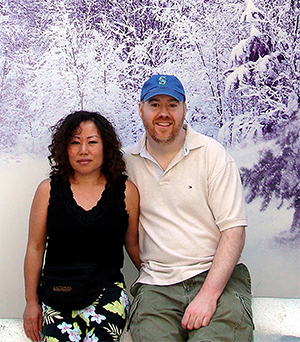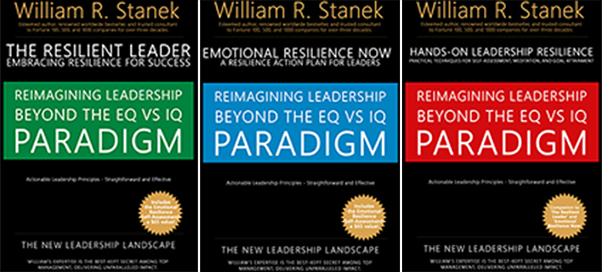

Mindful Living
In our fast-paced world, mindfulness offers a path to connection and inner peace. The "Mindful Living" series by William and Hui Cha Stanek encourages you to slow down, be present, and transform your everyday life. Whether you’re new to mindfulness or deepening your practice, these articles provide practical guidance for living with purpose, presence, and clarity. Embrace each moment with awareness, and connect more deeply with yourself and the world around you.

Transform your life with practical wisdom. Discover William Stanek's 'Living Well' series—your guide to a balanced and fulfilling life.
Discover William Stanek's Exclusive Art Collection
Explore and purchase the stunning art featured on this site. Own a piece of William Stanek's unique and captivating artwork today!
(February 5, 2025) Journaling for Mental Clarity: Writing Your Way to the Stanek Mindset
In a world that often feels overwhelming, with emotions running high and thoughts scattered in every direction, finding mental clarity can seem like an impossible task. But for Hui Cha and me, journaling has been a lifeline—a way to bring order to the chaos, to process complex emotions, and to gain insight into our inner worlds. Writing has always been more than just putting words on paper for us; it’s been a practice of mindfulness, a tool for self-discovery, and a path to mental clarity.
Journaling is a practice that anyone can start, no matter where they are in life or what challenges they’re facing. It doesn’t require fancy tools or a lot of time—just a willingness to sit down, open a notebook, and start writing. Over the years, we’ve found that the simple act of writing has helped us navigate some of the most difficult moments in our lives, offering us a way to reflect, understand, and ultimately, heal. In this article, we’ll explore the benefits of journaling for mental health, share tips for starting your own journaling practice, and offer insights into how this powerful tool can help you gain clarity and insight in your own life.
The Benefits of Journaling for Mental Health: A Reflective Practice Rooted in Experience
For me, journaling began as a necessity during my military service. The experiences I faced were often overwhelming, and there were times when the emotions I felt were too complex to process in the moment. Writing became my outlet, a way to make sense of what I was going through, to give voice to the thoughts and feelings that were often too difficult to express out loud. It was a private space where I could be honest with myself, where I could confront my fears, my doubts, and my hopes without judgment.
Hui Cha also turned to journaling during challenging times, especially when I was deployed or when we were dealing with personal hardships. For her, journaling was a way to stay grounded, to keep track of her thoughts and emotions, and to find a sense of peace in the midst of uncertainty. Through journaling, she was able to reflect on her experiences, gain new perspectives, and connect with her inner self in a way that brought clarity and calm.
The benefits of journaling for mental health are well-documented, and our experiences echo what research has shown. Journaling can help reduce stress, improve emotional regulation, and increase self-awareness. It provides a safe space to explore difficult emotions, to process trauma, and to work through challenges in a constructive way. And perhaps most importantly, it offers a way to gain insight into yourself and your life, helping you to understand your thoughts, feelings, and behaviors on a deeper level.
Starting a Mindful Journaling Practice: Finding Clarity Through Reflection
If you’re new to journaling or if you’ve tried it in the past but struggled to make it a consistent practice, don’t worry—you’re not alone. The key to successful journaling is to approach it with mindfulness and intention. Here’s how you can start your own mindful journaling practice, inspired by the introspective journeys that Hui Cha and I have taken over the years:
-
Set Aside Time Each Day:
- The first step in starting a journaling practice is to make it a part of your daily routine. Choose a time of day that works best for you—whether it’s first thing in the morning, during a lunch break, or before bed—and commit to spending at least 10-15 minutes writing. The consistency of this practice is more important than the length of time you spend writing.
-
Create a Peaceful Writing Space:
- Find a quiet, comfortable place where you can write without distractions. This could be a cozy corner of your home, a favorite spot in a park, or even a quiet café. Creating a peaceful environment will help you focus and make the act of journaling feel like a special, intentional practice.
-
Use Mindful Prompts to Guide Your Writing:
- If you’re not sure where to start, using prompts can be
incredibly helpful. Here are a few mindful prompts inspired by our
own journaling practices:
- Reflect on a recent challenge: What emotions did it bring up? How did you respond? What did you learn from the experience?
- Describe a moment of gratitude: What are you thankful for today? How does this gratitude affect your mood and outlook?
- Explore your hopes and fears: What are you currently hoping for or worrying about? How can you address these feelings in a constructive way?
- Write about a significant life event: How did this event shape who you are today? What lessons did you take away from it?
- If you’re not sure where to start, using prompts can be
incredibly helpful. Here are a few mindful prompts inspired by our
own journaling practices:
-
Focus on the Process, Not the Product:
- Journaling is a practice for you and you alone. There’s no need to worry about grammar, spelling, or how your writing sounds. The goal is to express yourself honestly and fully, without judgment. Allow yourself to write freely and let the words flow without overthinking.
-
Reflect on Your Writing:
- After you’ve finished writing, take a few moments to read over what you’ve written. Reflect on the thoughts and emotions that came up, and consider how they relate to your current experiences and challenges. This reflection can help you gain deeper insights and make connections that you might not have noticed before.
Personal Story: The Therapeutic Effects of Journaling During Challenging Times
There was a period in my life when everything felt like it was falling apart. The stress of military deployments, the emotional toll of being away from my family, and the weight of personal struggles all began to take their toll. I felt overwhelmed, disconnected, and unsure of how to move forward. It was during this time that I turned to journaling as a way to cope.
Every night, after the day’s duties were done, I would sit down with my notebook and write. I wrote about the fear I felt, the anger, the sadness, and the uncertainty. I wrote about the moments of joy and connection, no matter how fleeting they were. And as I wrote, something began to shift inside me. The act of putting my thoughts and emotions into words helped me to see them more clearly, to understand them in a way that I hadn’t before. It was as if the fog that had been clouding my mind began to lift, and I could finally see a path forward.
Journaling didn’t solve all my problems, but it gave me a sense of clarity and control that I desperately needed. It allowed me to process my emotions, to make sense of the chaos, and to find strength in my own resilience. It was a therapeutic practice that helped me to heal, to grow, and to move forward with a renewed sense of purpose.
Hui Cha also found journaling to be a powerful tool during times of personal hardship. When I was away, and she was managing the household and raising our children on her own, she would often turn to her journal as a way to process her thoughts and emotions. Writing gave her a space to express the fears and frustrations that she couldn’t always share with others, and it helped her to stay grounded and focused, even when life felt overwhelming.
Together, our journaling practices became a way to support each other, even when we were miles apart. We would share excerpts from our journals, offering each other encouragement, understanding, and love. This practice of reflective writing helped us to stay connected, not only to each other but to ourselves.
Making Journaling a Consistent Part of Your Routine: Tips for Daily Reflection
Journaling is most effective when it’s a regular part of your routine. Here are some tips to help you make journaling a consistent practice, echoing our belief in the power of daily reflection:
-
Start Small:
- If you’re new to journaling, start with just a few minutes each day. The key is to build the habit gradually. As you become more comfortable with the practice, you can extend your writing sessions.
-
Be Flexible:
- Life can be unpredictable, and there will be days when journaling might not fit into your schedule. That’s okay. Be flexible with yourself and recognize that some days will be easier than others. What’s important is that you return to the practice when you can.
-
Set Realistic Goals:
- Don’t set yourself up for failure by expecting to write pages every day. Set realistic goals, such as writing for five minutes or filling a single page. These small, achievable goals can help you stay motivated and prevent burnout.
-
Use Journaling as a Stress-Relief Tool:
- When you’re feeling particularly stressed or overwhelmed, turn to your journal as a way to release those emotions. Even a few minutes of writing can help you gain perspective and calm your mind.
-
Celebrate Your Progress:
- Take time to reflect on your journaling journey. Look back on your entries and notice how your thoughts, feelings, and perspectives have evolved. Celebrate the insights you’ve gained and the progress you’ve made.
Conclusion: Embrace Journaling as a Path to Self-Discovery and Mental Clarity
For Hui Cha and me, journaling has been more than just a writing practice—it’s been a path to self-discovery, a way to gain mental clarity, and a powerful tool for emotional healing. It has helped us navigate the complexities of life, process our emotions, and find strength in our own resilience. And it’s a practice that we believe can benefit anyone, no matter where they are on their journey.
If you’re looking for a way to gain clarity, to connect with yourself on a deeper level, or to find peace in the midst of life’s challenges, we encourage you to embrace journaling as a part of your daily routine. Start small, be patient with yourself, and allow the words to flow. Through journaling, you can create a space of reflection, insight, and growth—a space where you can truly understand yourself and your place in the world.
So, grab a notebook, find a quiet corner, and start writing your way to the Stanek mindset. You may be surprised at the clarity, wisdom, and strength you discover within yourself.

Join William at the crossroads of technology, business, and leadership, where true influence isn't about titles - it's about inspiring action, driving change, and guiding others with integrity. Discover how authentic leadership can transform not just careers, but entire industries.
Bring Inspiration Home
Enhance your space with William Stanek's evocative art. Each piece is crafted to inspire and uplift your everyday life.

Support The Lights of Paris by Robert Stanek, William Stanek's pen name! Through vivid historical detail and deeply moving character stories, Robert takes readers on an unforgettable journey through one of history’s most transformative times.

















